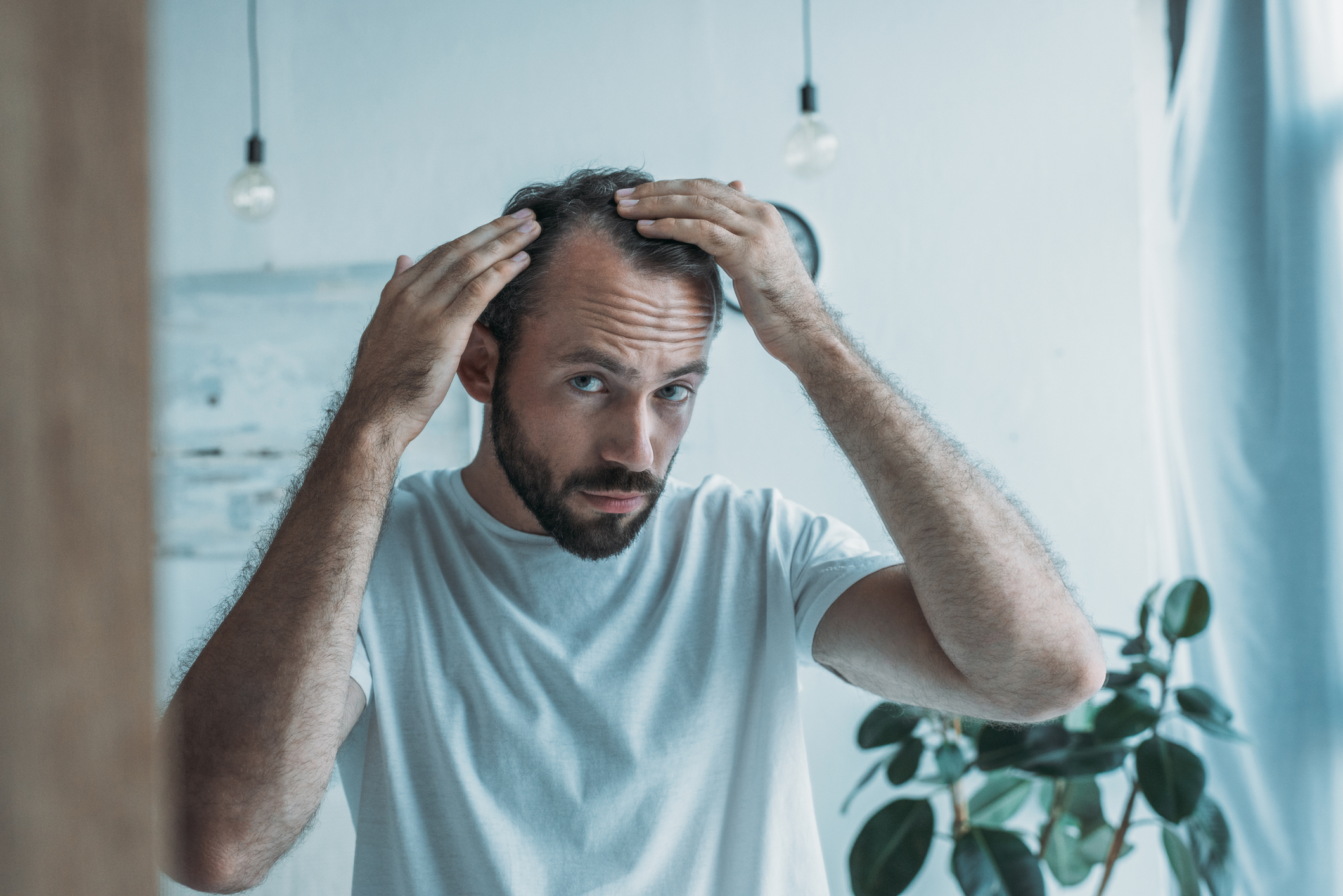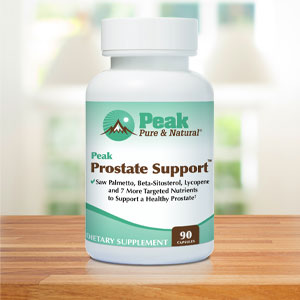Get Easy Health Digest™ in your inbox and don’t miss a thing when you subscribe today. Plus, get the free bonus report, Mother Nature’s Tips, Tricks and Remedies for Cholesterol, Blood Pressure & Blood Sugar as my way of saying welcome to the community!
Getting to the ‘root’ of hair loss—and regrowth

We often think hair loss is caused by aging. To some degree that’s true — as many as 50% of Americans over the age of 40 are experiencing some hair loss — but as with any health condition, it’s more complicated than this. Whether or not we retain healthy hair follicles can depend on genetics, nutrition, hormones, circulation to the scalp and other factors.
This complexity is actually good news for people suffering from hair loss, termed alopecia. It means we don’t have to blindly accept thinning hair as a fact of life. There are a number of approaches that can potentially halt and possibly even reverse the process of hair loss. Even better, by addressing underlying issues linked to alopecia, we can improve overall vitality while growing healthier hair.
Nutrition
Sometimes hair loss can be linked to a vitamin or mineral deficiency. This is no surprise, as our bodies simply don’t function effectively without good nutrition.
A basic nutrient-dense diet emphasizes lean proteins, lots of vegetables, some fruits, healthy fats, and sprouted whole grains. Hair is made up of protein, so eating more high-quality protein such as wild salmon, sprouted legumes and grains, free-range meats and eggs, and other good protein sources can be helpful. Increase intake of omega-3 fatty acids (found in wild salmon, sardines, walnuts, flax and chia seeds), which are good for scalp and hair health.
Sometimes hair loss can stem from an iron deficiency, so look to green leafy vegetables. (Beef can provide iron, but can also drive production of sebum, which has been linked to hair loss, so it’s best eaten in moderation.) Some people experiencing hair loss may also have deficiencies of zinc. This essential mineral can be found in cashews, spinach, beans, mushrooms, oysters, flax seeds and other foods.
Prescriptions and stress
Drugs can also play a role in hair loss, so check with your physician. Blood thinners, birth control pills and antidepressants have all been linked to alopecia. Generally, these only impair hair growth temporarily. After the prescription is stopped, hair will often grow back.
Stress can also thin hair. Chronic stress fuels inflammation and immune/hormone imbalances, which can contribute to hair loss. Meditation, yoga, Tai Chi and other stress reduction techniques can reduce inflammation and lower stress hormones, while also increasing circulation – another hair health benefit.
Hormones
An underactive thyroid can also cause hormone imbalances that lead to hair loss. This small gland in the throat secretes hormones that govern cellular energy, as well as how the body reacts to other hormones. Sea vegetables, such as kelp, nori and dulse are loaded with iodine, which can help regulate the thyroid and promote healthy hair growth. Because hair loss is a hallmark symptom of thyroid hormone imbalances, have your healthcare provider test your levels. Aging can bring imbalances in androgenic hormones, with elevated dihyrdrotestosterone (DHT) stimulating “male pattern balding” in both men and women.
Herbs
There are a variety of herbal supplements that have been shown in preclinical studies to increase hair growth and provide other benefits. Here’s a short list.
- Eclipta Alba, also called False Daisy, has been used to support liver and eyes. A number of studies have shown that it can also encourage hair growth.
- Cuscuta reflexa has been used as a muscle relaxant, antioxidant and antiviral. It’s also been found to help grow hair.
- Tectona grandis Linn seeds have long been used by Ayurvedic practitioners to increase hair growth. One study found they are at least as good as the prescription drug minoxidil.
- Indian gooseberry, applied topically has been shown to regulate local hormone levels in hair follicles.
Fighting hair loss is part of a holistic approach to good health. As we focus on nutrition, healthy stress relief and hormone balance, we are also rewarded with other benefits: Greater energy, vitality and sense of well-being. Add in the extra confidence afforded by healthy-looking hair, and your overall well-being can really “take root.”
Editor’s note: Did you know that when you take your body from acid to alkaline you can boost your energy, lose weight, soothe digestion, avoid illness and achieve wellness? Click here to discover The Alkaline Secret to Ultimate Vitality and revive your life today!














